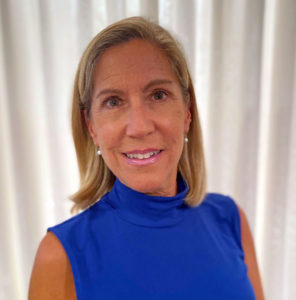 Ed Talk is a biweekly opinion column. The views expressed are solely the author’s.
Ed Talk is a biweekly opinion column. The views expressed are solely the author’s.
For the second year in a row, Niche has ranked Arlington Public Schools (APS) as the best school division in Virginia.
The Niche rankings are based in part on standardized test scores in reading and math, averaging the test scores of all students. While Arlington can be proud of the quality of its schools, such rankings based on aggregate data hide the disparities in academic achievement among different student groups.
Virginia Department of Education data shows startling gaps between white students and others in reading test scores in Arlington for 2018-19: a 56 point gap for English learners, 40 points for students with disabilities, 31 points for economically disadvantaged students, 28 points for Hispanic students, and 22 points for black students.
There are significant disparities in other subject tests results as well. And different outcomes for different groups of students extend beyond test scores to gifted programs, advanced studies diplomas, school discipline, measures of wellness, and extracurricular activities.
One way to address these disparities is to focus on equity and APS is doing just that. Equity is an APS core value described this way: “Eliminate opportunity gaps and achieve excellence by providing access to schools, resources, and learning opportunities according to each student’s unique needs.”
The School Board plans to expand on this by adopting an equity policy, likely in November.
The School Board’s equity policy should draw on the work of Destination 2027, an initiative of Arlington’s Public Health Division working to achieving health equity by 2027. The Destination 2027 Steering Committee’s final report recommends that equity can be put into action by asking four questions:
- Who benefits?
- Who is burdened?
- Who is missing?
- How do you know?
The School Board should include these questions in its equity policy, as the County Board did in its recently adopted equity resolution. Eliminating opportunity gaps and achieving excellence for all students means asking these questions in the School Board’s decisions about the budget, capital improvements, boundary changes, policies, programs, and hiring.
The School Board is investing in its commitment to equity by hiring a Chief Diversity, Equity and Inclusion Officer, which will report to the Superintendent and be responsible for instructional equity, recruiting and retaining diverse staff, and developing partnerships with the community. The County Board should make a similar investment in its upcoming budget by including a Chief Equity Officer in the County Manager’s Office to coordinate its equity work and partner with APS.
If the APS equity focus is to be more than a rebranding of previous efforts to reduce the achievement gap, it must work with Arlington County government and the community, including non-profit organizations, to address each student’s unique needs. This extends beyond specific learning needs.
One promising approach is the community school model, which brings existing community resources into schools to assist students and families with academic support, enrichment activities, health care, nutrition, and social services. Despite data showing the effectiveness of this model, including a 100 percent graduation rate in 2017-18 for Communities in Schools of Northern Virginia participants, Arlington has only a handful of such schools.
Educational equity is important not only for the success of our students, but also for the benefit of the larger community. The County Board’s equity resolution defines equity “as all populations having access to community conditions and opportunities needed to reach their full potential and to experience optimal well-being.” Education is one of those community conditions.
Adopting an equity policy and having appropriate staffing are important steps toward reducing disparities. Asking the right questions and expanding the community school model are some good next steps.
Abby Raphael served on the Arlington School Board from 2008-2015, including two terms as Chair. She also led the Washington Area Boards of Education for two years. Currently she co-chairs the Project Peace Prevention Committee and Destination 2027 Steering Committee, is a member of the Board of the Arlington YMCA, and works with the Community Progress Network and Second Chance.

